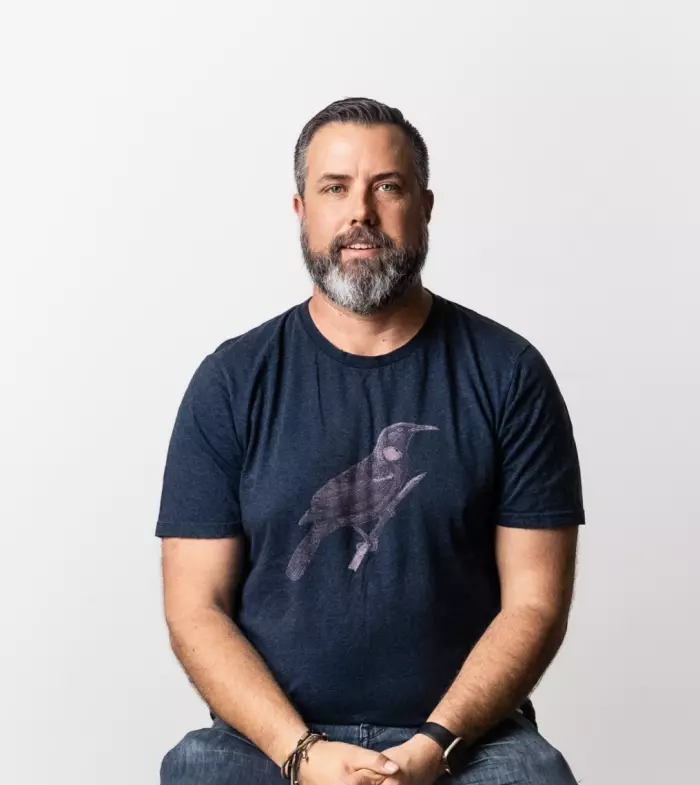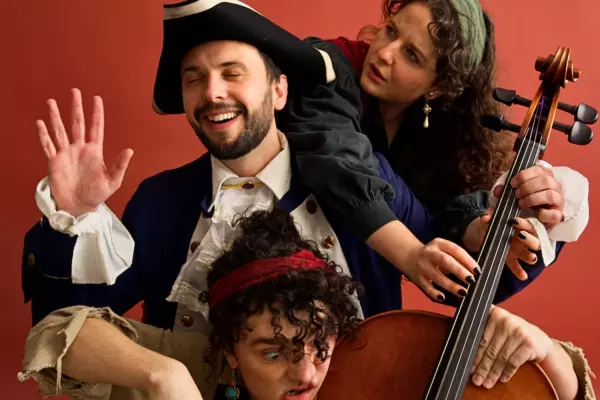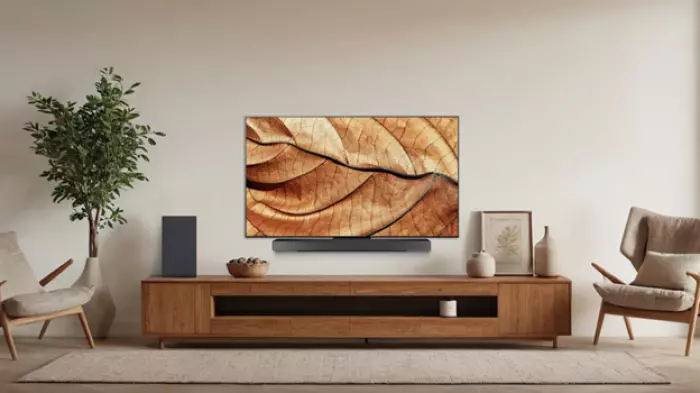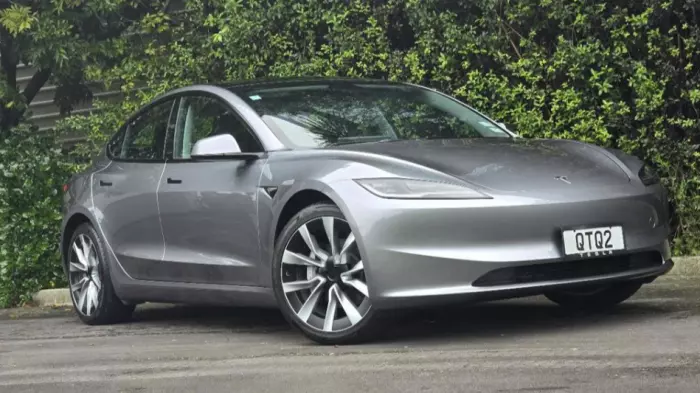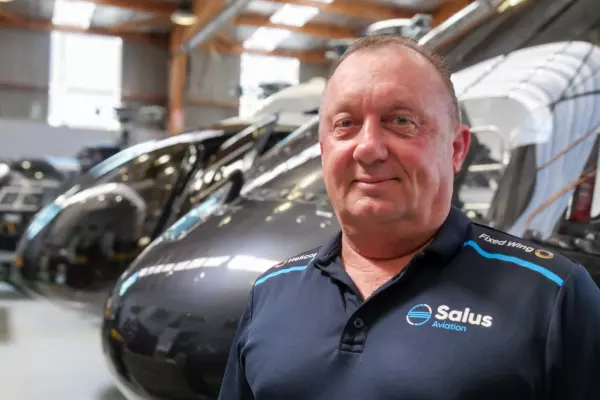Welcome to My Net Worth, our regular column on the lives and motivations of our country’s top business, legal and political people, in their own words.
Seeby Woodhouse is a New Zealand internet industry pioneer. At the advent of this country’s internet revolution, he dropped out of his electrical engineering degree at the University of Auckland to build internet service provider Orcon. He went on to sell it to state-owned Kordia for $24.7 million in 2007, later returning to the business world to launch Voyager Internet after a brief hiatus enjoying his newfound fortune. Voyager is now said to be worth more than $40 million.
My parents were both librarians, and I grew up around a lot of books. Our family home was in Glenfield on the North Shore, and I had a pretty normal middle-class upbringing. But we definitely didn’t have a lot of money or connections.
The 1987 stock market crash, which happened when I was about 11, was a formative experience for me. My dad got involved in the stock market and took on debt to buy at the peak of the craziness. We got wiped out, and we weren’t wealthy to begin with.
My dad was a proud person and he probably felt embarrassed by us not having any money. At Christmas, he couldn’t buy me the things he wanted to.
If you don’t come from a rich family, you want to make something of yourself. I got the idea that I wanted to become a businessperson from Bob Jones, or someone like that, on TV. He was saying he could see the stock-market disaster coming. I thought if this person knows more than my parents then perhaps I should get into business.
I was homeschooled until that point, but after our financial difficulties, my parents broke up and my mum had to put me back into school. My parents let me read lots of books, but I didn’t know much about maths or sports or anything like that.
My uncle got me a Forbes 400 list of the wealthiest people, and that made a big impact on me. Many of these successful people grew up poor. I was already very ambitious, and got involved with the Young Enterprise programme. Then I started my first businesses, one of which was business-card printing. They were failures.
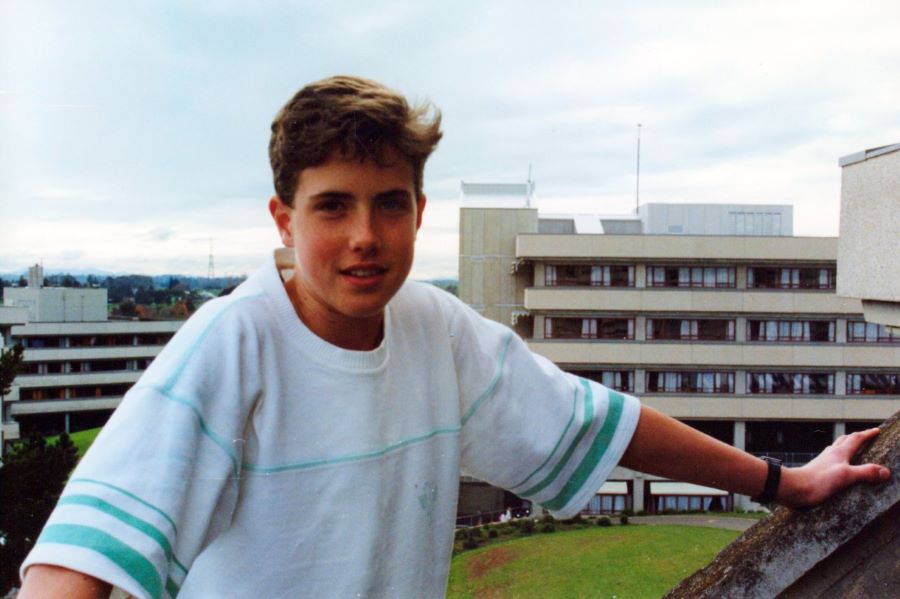 Seeby Woodhouse aged 15 on a school trip to Waikato University. Photo: Supplied.
Seeby Woodhouse aged 15 on a school trip to Waikato University. Photo: Supplied.
When I left school, I went to the University of Auckland to study electrical engineering. There was a lecture about the internet, and as soon as the guy started talking, I had a vision of what the future was going to be, and that this thing was going to be huge. Immediately, I decided I wanted to create the world’s biggest internet company. I dropped out in 1996.
Orcon doubled in size every year for about nine years. I think I can trace that back to my hardcore planning and targets. Looking back at that time, it was kind of amazing. I had so much energy, sleeping in the office and doing everything to build this company, working 16 hours a day, seven days a week, with no outside capital or investment, just doing it by grinding.
I was used to eating baked beans and surviving in my tiny rental when I sold Orcon. All of a sudden, I’m 29 and had $22 million. I spent about $18 million of that in weeks, buying properties, including one in Milford, on a cliff, with a nightclub, spa pool, and nine bedrooms. After the 2008 crisis hit, I realised I didn’t have a lot of money left.
Three years after selling Orcon, I got a bit depressed and realised I didn’t really have a purpose. So then I started Voyager in 2010, partly because I had experienced some bad service from Orcon, and that pissed me off. Voyager is now about 40% to 50% bigger than Orcon was.
In retrospect, I’ve made a few mistakes over the years. I sold Orcon when I should have kept on running it. It was sold seven years later to what is now Vocus Group for about $125 million, and I could have had that sale for myself.
I have probably missed out on being a billionaire four times. I was in the right place at the right time but didn’t do anything about it. Rod Drury saw me after I sold Orcon and said he had a great idea for an accounting company and asked if wanted to invest. I could have owned one third of Xero for about $1 million.
I also heard about Bitcoin at the beginning of 2008. I thought it looked like a bit of a bubble, but thought it was interesting. I told all of my friends, and they made millions, but I didn’t.
Richard Branson is a huge influence on my career. He has a fun lifestyle as well as running his businesses. I never understood the Warren Buffett mindset of earning billions and living a modest, boring life. Branson’s only about 10% as rich, but he has more fun. I’m lucky to have met him three times.
Rather than trying to relax or find a work-life balance, I tend to dive into new projects. I own part of about a dozen companies, and when I become mentally exhausted, I tend to take up a new hobby.
In my spare time I ride motorbikes. Although I haven’t yet got a pilot’s licence, I have been flying helicopters for about two years. I am also classically trained on the piano, and started playing recently just to enjoy it again, after not playing for 25 to 30 years.
I also love photography. Following my divorce about six years ago, I spent five years travelling on and off, for about six months at a time. I took 350,000 photos in 75 countries.
I own a lot of art and have ended up collecting from a gallery in Oregon, which sends me futuristic artworks. I also own a luxury lodge in Warkworth (The Woodhouse Lodge). It’s 100 acres of native bush, with beautiful views. I bought it three or four months ago, and Rachel Hunter recently hosted a wellness retreat there.
For young business owners looking for advice, I’d say have a focus. If you’re not enjoying it, do something else. When I was young, I was committed, and I knew I was going to pursue my goals. If you have a real passion, everything else follows.
Pretty much everything I’ve learnt, I’ve learnt from books. The amazing thing about books is that someone can spend 50 years learning about a subject, and you can pick up all of that knowledge from them over the course of a weekend. Reading is a superpower.
As told to Daniel Dunkley.
This interview has been edited for clarity.


